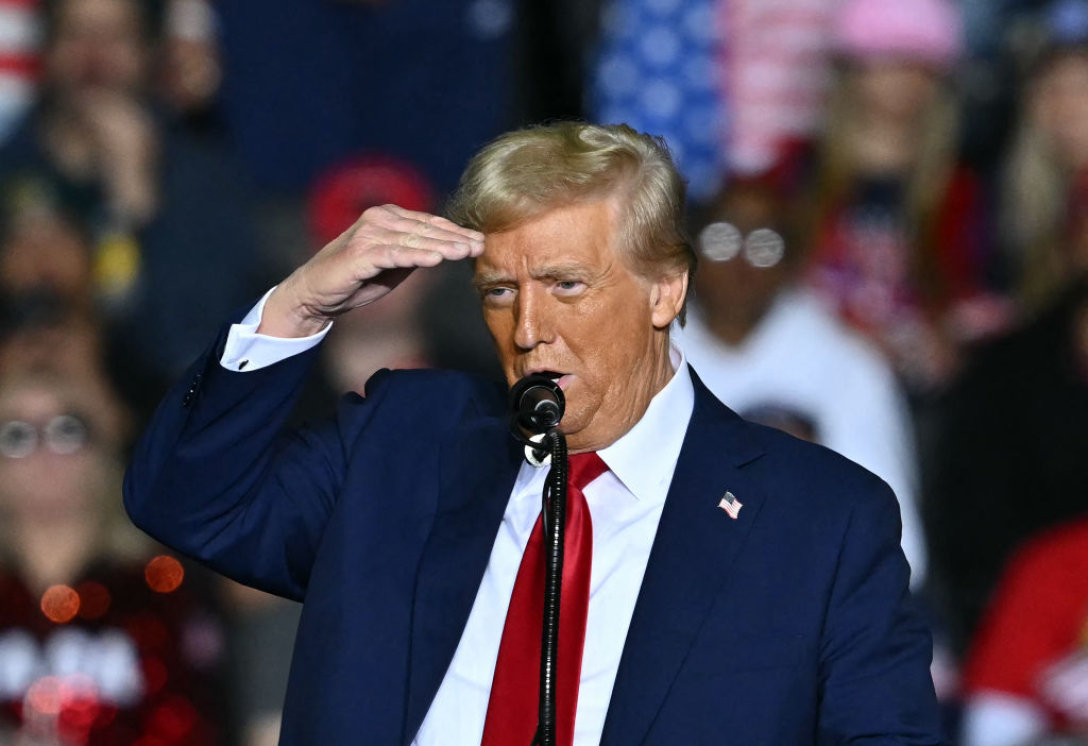Will the US and EU clash over Trump, impacting their friendship for profit, and what consequences will this have for Ukraine?
Referring to discussions with 15 politicians and experts from five European countries, The Washington Post writes that after experiencing one Trump presidency, they are better prepared for a second. In particular, it is reported that European officials are developing various contingency plans regarding security and trade.
Among other concerns, the promise made by Mr. Trump to impose high tariffs on imports is highlighted as a major worry. To "calm Trump," Europe has begun compiling lists of countermeasures and outlining negotiation strategies. The German economy is identified as the most vulnerable to tariff increases. "The prospect of a trade war with Trump heightens fears of a recession. The German Economic Institute has warned that Trump's tariffs could result in losses for German companies amounting to $162 billion," the report states.

Another area of concern in Europe is Trump's position on NATO and the Russia-Ukraine war. According to WP, if he wins the election, the Republican intends to pressure official Kyiv into conceding territory and pursuing a peace agreement with Russia. "To safeguard against a change in Washington's stance, NATO has taken on some of the U.S. responsibilities in assisting Ukraine, while European countries have increased their military spending. However, European officials acknowledge that losing U.S. support would be a devastating blow," notes The Washington Post.
In conclusion, the publication emphasizes that European officials view Trump's commitment to Ukraine in its war against Russia as uncertain and recognize "how high the stakes are."
Will a new alliance supporting Ukraine be formed?
An expert believes that even if a rift develops between Europeans and Americans, leading to a noticeable decrease in aid to Kyiv, "there's no reason to panic." "In such a scenario, besides Europe, which will remain, countries like Japan and South Korea will play an even larger role. Both are economically powerful; Japan is the fourth-largest economy in the world, while South Korea ranks around tenth. Thus, we must understand that support for Ukraine will persist. The only difference will be a reformatting, and moreover, this reformatting may also affect NATO. If Washington decides to exit the Alliance, I wouldn’t rule out that Japan and South Korea might step in, as they recognize the pressing need for this bloc," notes Ivan Us.
 0
0 He believes that Tokyo and Seoul have their own interests in actively supporting Ukraine: "For South Korea, it's about countering North Korea, and for Japan, it's an opportunity to reclaim northern territories, namely the Kuril Islands."
Modeling the situation according to this outlined scenario, the expert suggested the formation of a new world order where "Europe, Japan, South Korea, and possibly other regional countries that fear China, particularly Australia and the Philippines, will be closely linked with Ukraine."
When asked how long such a geopolitical reformatting might take, Ivan Us stated: "Given the high motivation of Europe on one side and Japan and South Korea on the other, I don't think we are talking about years. If the U.S. steps back from the Eurozone and thus from aiding Ukraine, I believe a new alliance to support our country will be formed by the end of 2025."
What is particularly interesting, according to the expert, is how the U.S. will behave in such a situation. If the United States realizes it is being sidelined, Ivan Us predicts, they are unlikely to want to "simply lose their current role and find themselves on the periphery of global processes."
Why Europe and the U.S. will continue to move together
 1
1 Noting that it is no longer the 1950s or 1960s when Europeans "had no economy at all," the expert added: "We are now in the early 21st century, where economies are large, and Europe has the capacity to spend on its own security, while Americans are indeed struggling. Moreover, it is not accurate to speak of a rupture in relations between Europe and the U.S. For instance, Trump wants to impose a 100% tariff on goods from countries that refuse to use the U.S. dollar in international trade. But we should also consider Trump's character, who loves to scare everyone to death and then propose to meet somewhere in the middle. While it is certain that Washington will impose economic tariffs in the case of China, the situation with Europe is still open to question. However, this does not imply that Euro-Atlantic cooperation between Europe and the U.S. will significantly cool, let alone be severed."
Emphasizing that there are currently no alternatives to U.S. security for Europe and that this situation is unlikely to change soon, Taras Zahorodniy noted: "Europe is also not particularly eager to distance itself from the U.S., as aside from Poland and the Baltic states, no one is really pushing for that 2% defense spending from GDP. In any case, we must clearly understand that The West is always about bargaining, meaning it is not about love but about calculation."
 2
2 The Russia-Ukraine war, the political scientist believes, has vividly demonstrated that "all those celebrated European values are no more than fairy tales." "Recall when at the beginning of this year the Armed Forces of Ukraine started targeting Russian refineries, immediately the head of the Pentagon, Austin, came out and, fully aware of the nonsense he was spouting, stated that the refineries are civilian infrastructure that should not be attacked. And why did this happen? Because American corporations needed cheap oil ahead of the elections, and so on."
Ukrainians, Taras Zahorodniy points out, must finally understand "the true philosophy of the West," which is that everyone loves only themselves and engages in friendship solely for money or necessity. All other statements, the political scientist believes, are "fables for especially naive individuals, who are not brought down from romantic heights to the sinful earth even by Poles and Hungarians, who consistently demonstrate that if there is no benefit, everything else is instantly forgotten."